Vaccinating your pet is one of the best ways to protect them from serious illness or disease. At Potomac Animal Wellness Services, we recommend having pets vaccinated at least once a year can create a vaccination program based on your pet’s age and lifestyle.
Or give us a call today at (301) 743-5411
Why Should I Vaccinate My Dog or Cat?
Pets need protection from viruses and other serious illnesses that may attack their immune system and have destructive effects on their overall health. Some diseases can be passed from pets to people, so having your pet vaccinated protect your family as well! At PAWS, we abide by the vaccination protocols as recommended by the American Association of Feline Practitioners and the American Veterinary Medical Association.
Your veterinarian will discuss your pet’s lifestyle with you to create a vaccination plan tailored to meet your pet’s specific needs. This not only allows your pet to receive necessary vaccines to benefit their health but is more affordable for you.
Cat and Dog Vaccinations in Indian Head, MD
Pet vaccines are specific to each species. Some vaccinations may be required, while others are recommended based on your pet’s age and lifestyle.
We offer the following vaccines for dogs and cats:

Dogs:
DHPP & Adenovirus to Hepatitis
This vaccine offers protection against canine distemper, adenovirus, para-influenza and parvovirus. Each disease can cause serious harm to your dog’s health with severe symptoms. Canine distemper affects your dog’s gastrointestinal and central nervous systems. Parvovirus may damage your pet’s heart muscle and provoke chronic cardiac issues. Both of these viruses can be deadly if prompt treatment is not provided. Parvo can also be transmitted to humans which makes it especially dangerous.
Para-influenza causes severe inflammation of your dog’s upper airways. Canine hepatitis infects the liver, kidneys, spleen, lungs, and eyes. Both of these illnesses are easily spread among dogs through contact with infected bodily fluids.
This vaccine should be administered as a part of your companion’s puppy shots around six to eight weeks old. Boosters will be given every three to four weeks until your puppy is 16 weeks old, and then again one year after the final puppy shot is received. Then we will provide subsequent doses every three years after that.
Bordetella
This disease affects the canine respiratory system, causing inflammation of the trachea and lung bronchi. Also known as kennel cough, Bordetella is commonly spread in animal shelters or boarding facilities. Your dog’s initial dose is administered through their nose and an injectable dose is given three to four weeks later. Successive vaccinations will swap between an intranasal and injectable dose.
Leptospirosis
Leptospirosis causes liver and kidney damage to pets and their humans. The disease is spread through contact with infected animals, water, or urine. Don’t let pets drink from natural bodies of water such as lakes or rivers, and refrain from exposing your dog to wild animals, farm animals, or rodents as these may lead to infection. The PAWS team will provide this vaccination in two doses three weeks apart, and then once a year to maintain adequate protection.
Rabies
All domesticated dogs and cats are required by law to receive a rabies vaccine. This deadly virus affects pets and humans. Symptoms include excessive changes in behavior, aversion to touch, light or sound, paralysis of the throat and jaw muscles and foaming of the mouth. Once puppies are 12 weeks of age, they should receive this as part of their puppy shots. A booster is administered one year later, and then every three years following.
Influenza
This virus may cause critical symptoms that result in fatal pneumonia. Canine influenza is a relatively new virus that is often spread through boarding facilities.
Lyme Disease
Lyme disease is spread through an infected tick bite and may result in fever, lameness, swelling in the joints, swollen lymph nodes, lethargy, and loss of appetite. If left untreated, this disease can affect your dog’s neurological function or cause kidney disease.

Cats:
This is often fatal virus attacks the brain and spinal cords of all mammals, including both humans and cats. Because of this, all pets are required to receive a rabies vaccine. Your feline companion will receive this vaccine as part of their kitten shots at 12 weeks old. Adult cats will receive booster shots in the Purevax® form every 1 to 3 years as recommended by your veterinarian.
This cat vaccination protects against feline viral rhinotracheitis, calici virus and panleukopenia. These diseases attack your cat’s respiratory and gastrointestinal systems and may present brutal symptoms in your feline. Each of these diseases are easily spread among cats through direct contact with an infected cat’s bodily fluids.
Symptoms range from mild to more severe, but kittens should receive their FVRCP vaccination when they are six weeks old and then additional doses should be given every three weeks until 16 weeks of age. After your cat has completed their kitten shots, they will receive a subsequent booster one year later and then once every three years.
Feline leukemia virus damages your cat’s immune system and may cause a variety of cancerous conditions. We recommend your feline receive this vaccine during their kitten shots at nine weeks old. The infection can occur before your cat shows any symptoms, which makes regular vaccination vital to your cat’s well-being.


